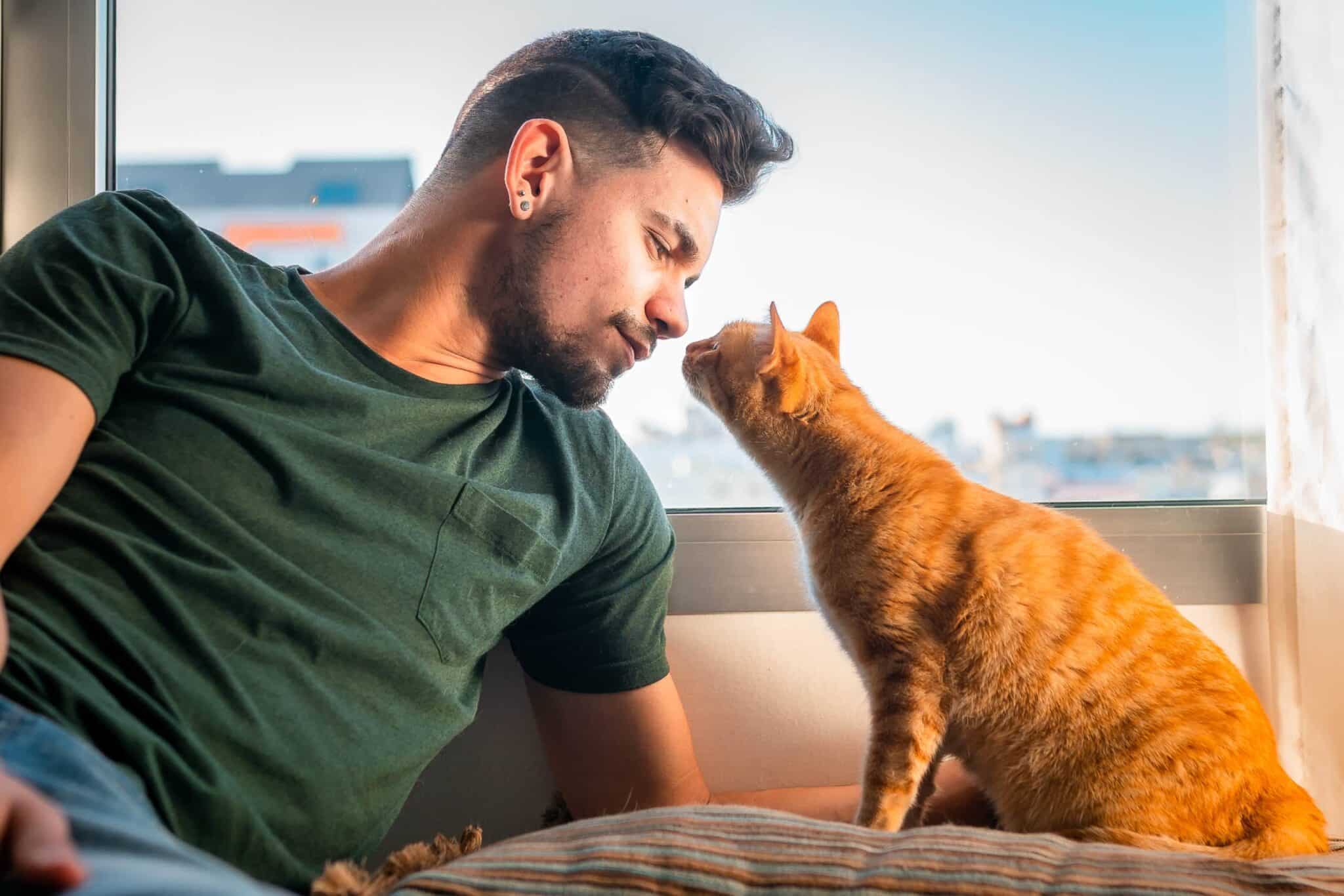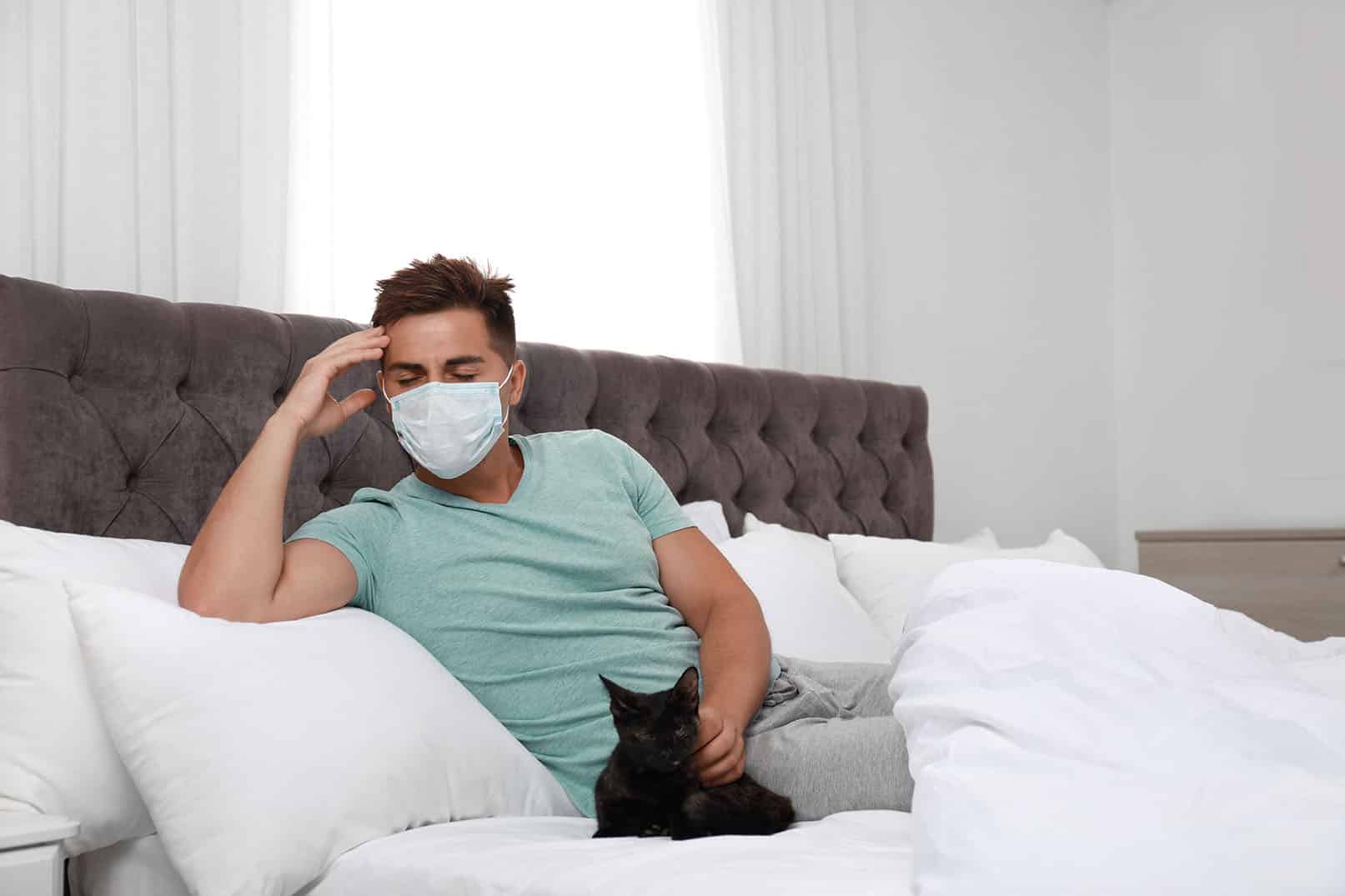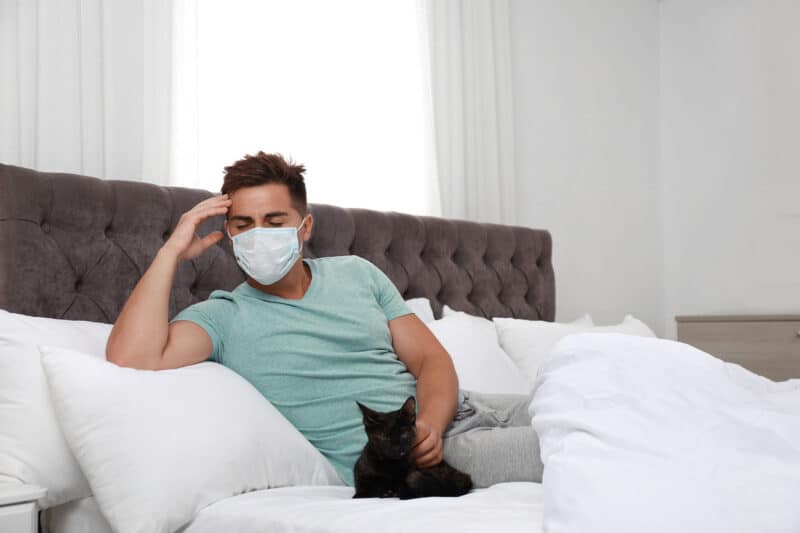Cat owners will likely say that having a feline in their home is more like a relationship than living with a dog. They display a range of emotions and moods that explain the differences in these pets. Therefore, it makes sense that a feline would get to know your habits. When it comes to the question of whether a cat can detect if you’re sick, the answer is probably yes.
Some accounts are anecdotal, which isn’t evidence in the true sense of the word. However, there is some compelling research that makes a strong case for this conclusion. We’ll consider the question from various perspectives that will shed light on our feline friends and help us understand them that much better.

The Olfactory World of Felines
The essential thing to realize is that cats live in an olfactory world. While they see better in dim-light conditions than us, they can’t see too far. Instead of vision, felines navigate with their sense of smell. After all, they are predators. They detect their prey through the chemical signals they release because they have millions of olfactory cells helping them do so.
It makes sense that cats could pick up on the different smells that you emit when you’re sick. You might use a methanol rub under your nose to breathe easier. You might be popping throat lozenges with different scents that your kitty could sense. Cats may even be able to detect them better than dogs, according to a 2017 study published in the journal Applied Animal Behaviour Science.
If you consider that dogs can detect low blood sugar and some cancers, that’s saying a lot. Cat owners certainly can attest to the superior ability of their pets to detect new scents. Think about the royal inspection you get when you come home after petting a dog, or worse, another cat.


Domestication of Cats
The domestication of cats provides additional clues about whether pets can tell if you’re sick. Scientists theorize that cats and people tolerated each other for thousands of years before felines crossed into the pet realm. New research indicates our relationship with them began about 12,000 years ago in the Near East.
It was during the Ancient Egyptian period that things took a better turn for cats. Archaeological findings show that they traveled with people to places far and wide, further cementing their relationship with humans. It’s not a stretch that a cat would get to know its domesticated world as well as its territory, especially if its food and survival depended on it.
Sharing DNA With Humans
Perhaps the most convincing evidence on whether a cat can tell if you’re sick comes from our shared DNA. The fact remains that humans and cats share a common ancestry that goes back about 92 million years. That’s because all mammals are descendants of an ancient animal that existed during the time of the dinosaurs.
The essential thing to understand about genes is that they are like the ingredients in a recipe. That, in turn, is the code of the proteins or other materials that an organism contains. The entire package is the cookbook. Humans have about 30,000 genes in our DNA, composed of 3 billion base pairs of chemical units. Of that latter amount, only about 500 are uniquely human.
What that means is that cats and people are more alike than we may think. That supports our conclusion that felines can detect sickness in humans. A 2007 study found that dogs and cats share about 94% of their DNA. It is 90% for humans and felines. We can see examples of it in the number of diseases that are common to both of us. Many have similar symptoms and courses as those of people.

Evidence of Detecting Illnesses
We’ve established that there is an intimate connection between cats and humans that could provide the basis for sickness detection. The next question is whether there is any proof of it. We need to go back to 2007 to a nursing home in Providence, Rhode Island, and their therapy cat named Oscar.
The medical staff noticed that this observant feline favored particular residents and would jump into bed and snuggle with them. The extraordinary thing was that these individuals would die within hours of Oscar’s visit. The cat accurately identified 50 pending deaths as of January 2010. Many of these patients were in intensive care. However, the timing of the cat’s visits with the outcomes is uncanny.

Final Thoughts
Evolution has steered the path for cats to develop keen instincts of smell and touch. It has allowed them to become the successful predators that they are. For pet owners, it has also brought an unexpected benefit. After all, few things can feel more comforting than to have your feline companion curled up next to you when you’re under the weather. It’s one of the many rewards of having a cat.
You might also be interested in:
- Can Cats Tell When You’re Sad? Feline Senses & Emotions Explained
- Can Cats Be Vegan? Here’s What Scientific Research Says
Featured Image Credit: New Africa, Shutterstock






